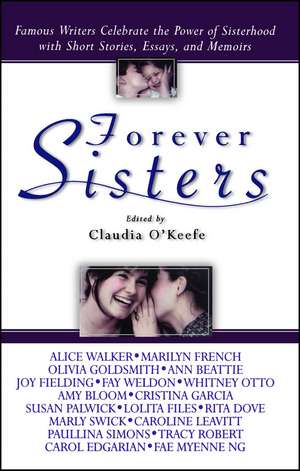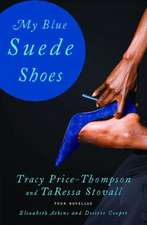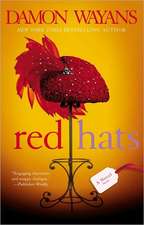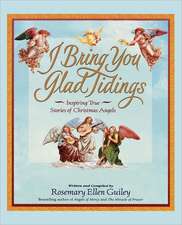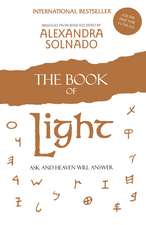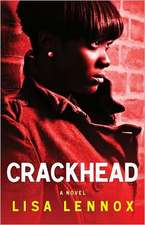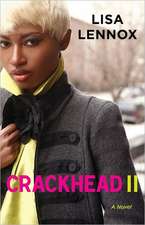Forever Sisters: Famous Writers Celebrate the Power of Sisterhood with Short Stories, Essays, and Memoirs
Autor Claudia O'Keefeen Limba Engleză Paperback – 21 aug 2000
Preț: 126.39 lei
Nou
Puncte Express: 190
Preț estimativ în valută:
24.19€ • 26.29$ • 20.33£
24.19€ • 26.29$ • 20.33£
Carte disponibilă
Livrare economică 31 martie-14 aprilie
Preluare comenzi: 021 569.72.76
Specificații
ISBN-13: 9780671042165
ISBN-10: 0671042165
Pagini: 320
Dimensiuni: 140 x 216 x 20 mm
Greutate: 0.34 kg
Editura: ATRIA
Colecția Atria Books
ISBN-10: 0671042165
Pagini: 320
Dimensiuni: 140 x 216 x 20 mm
Greutate: 0.34 kg
Editura: ATRIA
Colecția Atria Books
Notă biografică
Claudia O'Keefe is the editor of the anthology Mother, praised as "a literary feast" (USA Today), and available from Pocket Books. Her newest anthology, Father, is forthcoming in trade paperback from Pocket Books. She is the author of the novels Gawkers and Black Snow Days; her short stories have appeared in several anthologies and magazines. Ms. O'Keefe is the granddaughter of Walter O'Keefe, a Broadway composer and radio legend of the 1940s.
Extras
Chapter One: Seven Sisters (An Analysis By Numbers) by Whitney Otto
1. The Biological Sister
A woman I worked with, named Ellery, was having a baby. Addison, her sister, was giving the shower, and since I volunteered to help, I was asked to arrive an hour earlier than all the other guests.
"You'll really like Addison," said Ellery as we walked to lunch. "She reminds me of Gina -- you know, in the art department -- unmarried, very personable, pretty, smart but with that sort of restless mind that gives the impression of being in two places at once." She then added, "Actually, Addison is a little like you."
We walked along in silence as I tried to decide if being like "Gina in the art department" was something I wanted. I never even got to the Addison comparison; Ellery said, "I mean it in a good way."
Ellery and I were work friends, that is to say, we seldom saw each other beyond the boundaries of the job. There was the occasional phone call, usually prompted by some unexpected work-related event. And we liked each other. I think, without stating it, we felt that forty hours and lunch once a week was more than enough together time. Besides, there was her husband, Jake, and their child-in-the-making.
I once asked her how she and her sister got the names Ellery and Addison.
"It's a tradition for the women in my family," she said.
"You mean your names are family names?"
"Not exactly. We have different names. The tradition is we all have boys' names. My mother is Corbett and my two aunts are Dexter and Drew. Well, Dexter was Dexter -- she died quite young."
"Isn't Drew more of an androgynous name?" I asked.
"These days it is, but not then. Times change."
Addison lived in a great flat. It was one of those places in San Francisco that came available by chance or death. It was full of windows and light, with a working fireplace, two bedrooms, two bathrooms, and a lush little garden behind the sunroom. To list all its features would make it sound like a real estate agent's lie.
"The one thing that could make me leave this flat is moving to Barcelona," Addison told me.
"What about the man of your dreams?" asked Ellery, smiling.
"Only if he lives in Barcelona."
"My sister," said Ellery, "lives what can only be described as 'the conditional life.'"
Addison laughed. "Unlike the suburban life of which my sister is so fond."
"The bland exterior camouflages the hidden wildness," said Ellery.
I should say this exchange had a sense of affectionate ritual about it. As we arranged hors d'oeuvres and flowers, there was further talk about Jake, Ellery's husband, and the fact that Addison had not yet married; about Addison's ambivalence in regard to children, but her undisguised joy at becoming an aunt.
"My little sister, the adult," said Addison, as they continued to lay out their differences for me. "So, what are you naming my favorite niece?"
"Dexter," said Ellery.
Everything stopped. The goodwill, the fond laughter, the closeness of the moment. Addison released the flowers, wiped her hands on her shirt and said, "Will you excuse us?" Then she looked at Ellery, who dutifully followed her into another room.
Even if I didn't like to eavesdrop, I was unable to avoid overhearing their conversation.
"You can't name the baby Dexter," I heard Addison say.
"Why?" asked Ellery.
"Because that's my name. I always said I would name my baby Dexter."
"No, no. I'm the one who said it."
"You only think it was you," said Addison.
"And you only think because you are the oldest that everything is yours," said Ellery.
"How can you say that?"
"It's true. You've gone through our entire lives claiming this and claiming that, and me, knowing whatever you took for yourself could never, ever, be mine."
"Oh, this is about me?"
"Stop being so egocentric for a minute," said Ellery. "This is about my baby and our aunt. You don't even know if you want a child."
"You don't know that I don't," said Addison.
"Oh. So I'm supposed to wait and see what you decide before I can sift through what is left over? We're not kids. You're thirty-five."
"Where do you get this?"
"From you, Addison. All my life, everything I have ever gotten has been from you."
"Fine. But I didn't tell you to run out and live a life opposite of mine."
"Maybe I wanted to set myself apart," said Ellery.
"And did you get what you wanted?"
Ellery hesitated. "I don't know."
"No one's life is free," said Addison with what sounded like a breath of regret. "Are you sorry for your life?"
"No. I love Jake and the baby too much. Still, sometimes I wish -- I wonder -- "
" -- what it would be like to swap places?" asked Addison. "So do I."
The surprise in Ellery's oh was unmistakable.
"I was often lonely," said Addison, "and a little envious because you had me in a way I couldn't have you. Maybe you've lived your life as a response to mine, but all I ever had was the unknown and the untried."
"It seemed that you clearly knew where you were going and what you wanted," said Ellery. "You appeared that determined to me."
"But you had a lightness I did not feel inside myself. When you made a mistake, it was just a mistake. If I erred, it felt like the world was coming down. There were times when I felt you watching me so intently, with so much admiration, or curiosity, that you failed to see me at all."
"Oh, baby," said Ellery, and I assumed that meant it had moved. The sisters said nothing, then I heard Ellery's voice. She sounded amused. "Look at us," she said, "the old maid and the wife; the one without children and the one with child; madonna and Magdalene; so exactly the same but different."
2. The Fairy-Tale Sister
It is a very bad idea to be the older sister. You are a shrew, you are lazy, selfish, sometimes beautiful with a beauty corrupted by your uncompassionate nature. Your love of jewels and general luxury is so strong it overrides all judgment. You are unloved because it is impossible to love you. As a matter of fact, it is well to leave you behind.
You lack the virtue of your younger, more fair, more honorable sister and it will often be your fate to live off the good graces of one you treated so ill.
The stepsister is a subset of the fairy-tale sister. Before my parents divorced and remarried other people, I was the oldest daughter. After the rearrangement of spouses, I found myself with two stepsisters, older than me, no longer living at home.
This turned out well, since one was plain and bitter and the other was pretty and mean, with toads and snakes that fell from her lips every time she spoke.
3. The Sister-in-Law
I read somewhere that two parents can produce an almost endless variety of offspring. And that our similarities to our siblings is more surprising than our differences.
Take three brothers and, for the sake of argument, say that these three brothers share a number of traits (even as they share as many dissimilarities), and all of them are heterosexual, and all of them are the marrying kind. The question is this: Will their wives be alike in any way (a sort of correlation to the brothers' own similarities) or will the women be a personification of the brothers' diverse traits?
Further, is it possible to know the brothers better through their choice of women?
For example, if one of the brothers is exacting and difficult but marries a woman of wit and warmth, can it be assumed that he has married his other half (his opposite), or is she the image of the deepest part of himself? A self so hidden that no one knows it is there?
Will the wives like each other? Will their discord and their camaraderie mirror their husbands' discord and camaraderie, as if all the brothers' loves and battles have been drawn into the open but are now spoken in the softness of a woman's voice?
4. The Sorority Sister
When I was in college, I did not join a sorority. It was my disinclination to join almost anything, even as I endlessly longed to be a part of everything. I'm one of those souls who wants an invitation to every party I have no intention of attending. This has to do with wanting to be included, not wanting to reject the inclusion. I'm also convinced that some fabulous life party is being held all around me and it is my obligation to want to participate.
Anyway, during my final year of college, I lived in a large flat with four roommates: an ex-sorority girl, a gay man, a heterosexual girl flirting with lesbianism, and a sorority girl. The sorority girl was rather unpleasant to live with, being both sloppy and selfish (two worlds not that far apart).
She volunteered our flat for some sort of sorority gathering, or initiation, or ritual, something very covenlike. I was informed that since I wasn't a sorority girl, I would have to leave for the duration of the meeting.
I was happy to go, though on principle I thought my roommate had nerve. My ex-sorority sister roommate was allowed to stay, but she declined and we went to see The Turning Point; my roommate, who had been a student at the American Ballet Theatre, told me about a girl she knew who was not a very good dancer but got into the corps of ABT because she was having an affair with Baryshnikov.
When we returned, the meeting had long since ended, but the heavy porcelain toilet tank top in the bathroom had been broken clean in half.
That is all I know about sororities.
5. Sister Sisters
During my senior year in high school, my friend Karen and I had to do a report that included interviews. Though we lived in Los Angeles, it was clear we would not be speaking to celebrities, power brokers, or anyone of interest. But my parents (non-Catholics) were friends with a young, handsome priest with the improbably perfect name of Father Sweet. My mother would curl up on the couch and coyly ask him things like "What do you say when you are at the beach and girls make passes at you?" (Many years later, my friend Jan, who is a Catholic, explained that a priest like Father Sweet is referred to as Father Whatawaste.) This is how Karen and I ended up taking on the Catholic Church as our subject.
I remember saying to Father Sweet, as Karen and I sat in his office, "Let me understand this: if a pregnant woman knows she will die in childbirth, she still should not have an abortion?" Yes, he said, then went on to give me an example that involved a mother, a child, and a burning building where everyone perishes. I felt there was no future here.
We then went to a local convent. It looked like anyone's ordinary home. Where I had been expecting stone and turrets and window grilles and a chapel that could inspire (or frighten) anyone, I got a two-story contemporary with a picture window. The nun we interviewed, like the rest of the nuns in the convent, taught school and wore street clothes. She talked about the economics of running a convent. After a while, she seemed like almost any mother in my neighborhood, discussing supermarket prices and the cost of kids' clothing.
I had come looking for mystery and sacrifice, and I finally asked, "Is there anything nunlike about you?"
She just smiled and held out her left hand. Her "wedding ring" was a soft, worn gold cross that wrapped around her finger so that the top of the cross touched the foot in an unbroken circle.
6. Sisterhood Is Powerful Sisters
Here are my feminist beliefs in a nutshell: a level playing field and equal pay. Anything more always strikes me as so much window dressing.
Still, in my freshman year of college I found myself in an empty classroom once a week, attending a women's consciousness-raising group. It was in this room that I looked into the vagina at the cervix of a classmate named Carla. Carla didn't shave or wear underwear of any sort. She had hopped up onto the teacher's desk, inserted the plastic speculum given out by the free clinic, and voilà! She asked us to note the near arrival of her period.
One evening we passed around photographs of masturbating women. Another time there was quite a flurry of anger as two women sputtered about men who held open doors for them or, worse, referred to their cars as "she."
On Sundays we met with the men's consciousness-raising group so they could talk about how much they wanted to be free to cry.
I was generally silent, partly because I was in various states of disbelief. And I discovered, early on, that laughing out loud was frowned upon. So there I was, resisting the urge to ask, "Is anyone else listening to this?" -- or "Is anyone else looking at this?" as the case may be -- thinking, One day I will write it all down.
7. Friends as Sisters
These are the only sisters you choose. The Biological Sister has to do with perpetuation of the species; the Fairy-Tale Sister teaches us about the world and the imagination; the Sister-in-law is part of the wedding promise where you take someone else's family as family, which means they belong to you now, and, like the Stepsister, she is inherited. The Sorority Sister is a by-product of the club you joined, and the Nun and the Feminist are just like the Sorority Sister, but in a different club.
You can adore all these sisters. And if you are lucky in life, you do. But the friend who becomes your sister is truly a sister of your heart. She shares your sensibility.
The day she migrates from friend to sister is like this: One day you are feeling at odds with her, maybe vaguely disappointed, irritated, wanting to rearrange her personality ever so slightly, but then you let it all go because the bottom line is this: you will always love her, no matter what. Unconditionally.
You go about the rest of your day. But you should mark this moment somewhere inside yourself because it is the moment she becomes your kin.
Whitney Otto
When Whitney Otto phoned me to tell me about "Seven Sisters: An Analysis by Numbers," she warned me that she didn't know what it was. "It's this weird combination of fiction and memoir," she said.
She was concerned.
"When I started on it, I wanted to write a straight-ahead story," she further explained, "something straightforward and lyrical like Amy Bloom or Lorrie Moore or Laurie Colwin," whose work she admires. Instead, she was so bored with her first attempt, she fell asleep at her keyboard.
"It sucked," she said.
Then she began to think about all the different permutations that a sister can take. She came up with a list of seven basic archetypes. Thinking she could do away with the numbers later, she began to flesh out the ingenious roman à clef you've just read, with quasifictional anecdotes from her own life. The numbers stayed.
An unusual, collagelike story structure has become a trademark with Otto, starting with her first novel, How to Make an American Quilt -- translated to the large screen in 1995, starring Winona Ryder, Anne Bancroft, Ellen Burstyn, and Jean Simmons -- and continued with subsequent titles Now You See Her and The Passion Dream Book.
A native Californian, Otto now lives in a three-story Victorian in Portland, Oregon, with her husband, John Riley; son, Sam; a dog; and a cat who she says "regularly shuns my love."
-- C.O.
Copyright © 1999 by Claudia O'Keefe
"Seven Sisters: An Analysis By Numbers," Copyright © 1999 by Whitney Otto. An original story printed by permission of the author and the author's agent, The Joy Harris Literary Agency, Inc.
1. The Biological Sister
A woman I worked with, named Ellery, was having a baby. Addison, her sister, was giving the shower, and since I volunteered to help, I was asked to arrive an hour earlier than all the other guests.
"You'll really like Addison," said Ellery as we walked to lunch. "She reminds me of Gina -- you know, in the art department -- unmarried, very personable, pretty, smart but with that sort of restless mind that gives the impression of being in two places at once." She then added, "Actually, Addison is a little like you."
We walked along in silence as I tried to decide if being like "Gina in the art department" was something I wanted. I never even got to the Addison comparison; Ellery said, "I mean it in a good way."
Ellery and I were work friends, that is to say, we seldom saw each other beyond the boundaries of the job. There was the occasional phone call, usually prompted by some unexpected work-related event. And we liked each other. I think, without stating it, we felt that forty hours and lunch once a week was more than enough together time. Besides, there was her husband, Jake, and their child-in-the-making.
I once asked her how she and her sister got the names Ellery and Addison.
"It's a tradition for the women in my family," she said.
"You mean your names are family names?"
"Not exactly. We have different names. The tradition is we all have boys' names. My mother is Corbett and my two aunts are Dexter and Drew. Well, Dexter was Dexter -- she died quite young."
"Isn't Drew more of an androgynous name?" I asked.
"These days it is, but not then. Times change."
Addison lived in a great flat. It was one of those places in San Francisco that came available by chance or death. It was full of windows and light, with a working fireplace, two bedrooms, two bathrooms, and a lush little garden behind the sunroom. To list all its features would make it sound like a real estate agent's lie.
"The one thing that could make me leave this flat is moving to Barcelona," Addison told me.
"What about the man of your dreams?" asked Ellery, smiling.
"Only if he lives in Barcelona."
"My sister," said Ellery, "lives what can only be described as 'the conditional life.'"
Addison laughed. "Unlike the suburban life of which my sister is so fond."
"The bland exterior camouflages the hidden wildness," said Ellery.
I should say this exchange had a sense of affectionate ritual about it. As we arranged hors d'oeuvres and flowers, there was further talk about Jake, Ellery's husband, and the fact that Addison had not yet married; about Addison's ambivalence in regard to children, but her undisguised joy at becoming an aunt.
"My little sister, the adult," said Addison, as they continued to lay out their differences for me. "So, what are you naming my favorite niece?"
"Dexter," said Ellery.
Everything stopped. The goodwill, the fond laughter, the closeness of the moment. Addison released the flowers, wiped her hands on her shirt and said, "Will you excuse us?" Then she looked at Ellery, who dutifully followed her into another room.
Even if I didn't like to eavesdrop, I was unable to avoid overhearing their conversation.
"You can't name the baby Dexter," I heard Addison say.
"Why?" asked Ellery.
"Because that's my name. I always said I would name my baby Dexter."
"No, no. I'm the one who said it."
"You only think it was you," said Addison.
"And you only think because you are the oldest that everything is yours," said Ellery.
"How can you say that?"
"It's true. You've gone through our entire lives claiming this and claiming that, and me, knowing whatever you took for yourself could never, ever, be mine."
"Oh, this is about me?"
"Stop being so egocentric for a minute," said Ellery. "This is about my baby and our aunt. You don't even know if you want a child."
"You don't know that I don't," said Addison.
"Oh. So I'm supposed to wait and see what you decide before I can sift through what is left over? We're not kids. You're thirty-five."
"Where do you get this?"
"From you, Addison. All my life, everything I have ever gotten has been from you."
"Fine. But I didn't tell you to run out and live a life opposite of mine."
"Maybe I wanted to set myself apart," said Ellery.
"And did you get what you wanted?"
Ellery hesitated. "I don't know."
"No one's life is free," said Addison with what sounded like a breath of regret. "Are you sorry for your life?"
"No. I love Jake and the baby too much. Still, sometimes I wish -- I wonder -- "
" -- what it would be like to swap places?" asked Addison. "So do I."
The surprise in Ellery's oh was unmistakable.
"I was often lonely," said Addison, "and a little envious because you had me in a way I couldn't have you. Maybe you've lived your life as a response to mine, but all I ever had was the unknown and the untried."
"It seemed that you clearly knew where you were going and what you wanted," said Ellery. "You appeared that determined to me."
"But you had a lightness I did not feel inside myself. When you made a mistake, it was just a mistake. If I erred, it felt like the world was coming down. There were times when I felt you watching me so intently, with so much admiration, or curiosity, that you failed to see me at all."
"Oh, baby," said Ellery, and I assumed that meant it had moved. The sisters said nothing, then I heard Ellery's voice. She sounded amused. "Look at us," she said, "the old maid and the wife; the one without children and the one with child; madonna and Magdalene; so exactly the same but different."
2. The Fairy-Tale Sister
It is a very bad idea to be the older sister. You are a shrew, you are lazy, selfish, sometimes beautiful with a beauty corrupted by your uncompassionate nature. Your love of jewels and general luxury is so strong it overrides all judgment. You are unloved because it is impossible to love you. As a matter of fact, it is well to leave you behind.
You lack the virtue of your younger, more fair, more honorable sister and it will often be your fate to live off the good graces of one you treated so ill.
The stepsister is a subset of the fairy-tale sister. Before my parents divorced and remarried other people, I was the oldest daughter. After the rearrangement of spouses, I found myself with two stepsisters, older than me, no longer living at home.
This turned out well, since one was plain and bitter and the other was pretty and mean, with toads and snakes that fell from her lips every time she spoke.
3. The Sister-in-Law
I read somewhere that two parents can produce an almost endless variety of offspring. And that our similarities to our siblings is more surprising than our differences.
Take three brothers and, for the sake of argument, say that these three brothers share a number of traits (even as they share as many dissimilarities), and all of them are heterosexual, and all of them are the marrying kind. The question is this: Will their wives be alike in any way (a sort of correlation to the brothers' own similarities) or will the women be a personification of the brothers' diverse traits?
Further, is it possible to know the brothers better through their choice of women?
For example, if one of the brothers is exacting and difficult but marries a woman of wit and warmth, can it be assumed that he has married his other half (his opposite), or is she the image of the deepest part of himself? A self so hidden that no one knows it is there?
Will the wives like each other? Will their discord and their camaraderie mirror their husbands' discord and camaraderie, as if all the brothers' loves and battles have been drawn into the open but are now spoken in the softness of a woman's voice?
4. The Sorority Sister
When I was in college, I did not join a sorority. It was my disinclination to join almost anything, even as I endlessly longed to be a part of everything. I'm one of those souls who wants an invitation to every party I have no intention of attending. This has to do with wanting to be included, not wanting to reject the inclusion. I'm also convinced that some fabulous life party is being held all around me and it is my obligation to want to participate.
Anyway, during my final year of college, I lived in a large flat with four roommates: an ex-sorority girl, a gay man, a heterosexual girl flirting with lesbianism, and a sorority girl. The sorority girl was rather unpleasant to live with, being both sloppy and selfish (two worlds not that far apart).
She volunteered our flat for some sort of sorority gathering, or initiation, or ritual, something very covenlike. I was informed that since I wasn't a sorority girl, I would have to leave for the duration of the meeting.
I was happy to go, though on principle I thought my roommate had nerve. My ex-sorority sister roommate was allowed to stay, but she declined and we went to see The Turning Point; my roommate, who had been a student at the American Ballet Theatre, told me about a girl she knew who was not a very good dancer but got into the corps of ABT because she was having an affair with Baryshnikov.
When we returned, the meeting had long since ended, but the heavy porcelain toilet tank top in the bathroom had been broken clean in half.
That is all I know about sororities.
5. Sister Sisters
During my senior year in high school, my friend Karen and I had to do a report that included interviews. Though we lived in Los Angeles, it was clear we would not be speaking to celebrities, power brokers, or anyone of interest. But my parents (non-Catholics) were friends with a young, handsome priest with the improbably perfect name of Father Sweet. My mother would curl up on the couch and coyly ask him things like "What do you say when you are at the beach and girls make passes at you?" (Many years later, my friend Jan, who is a Catholic, explained that a priest like Father Sweet is referred to as Father Whatawaste.) This is how Karen and I ended up taking on the Catholic Church as our subject.
I remember saying to Father Sweet, as Karen and I sat in his office, "Let me understand this: if a pregnant woman knows she will die in childbirth, she still should not have an abortion?" Yes, he said, then went on to give me an example that involved a mother, a child, and a burning building where everyone perishes. I felt there was no future here.
We then went to a local convent. It looked like anyone's ordinary home. Where I had been expecting stone and turrets and window grilles and a chapel that could inspire (or frighten) anyone, I got a two-story contemporary with a picture window. The nun we interviewed, like the rest of the nuns in the convent, taught school and wore street clothes. She talked about the economics of running a convent. After a while, she seemed like almost any mother in my neighborhood, discussing supermarket prices and the cost of kids' clothing.
I had come looking for mystery and sacrifice, and I finally asked, "Is there anything nunlike about you?"
She just smiled and held out her left hand. Her "wedding ring" was a soft, worn gold cross that wrapped around her finger so that the top of the cross touched the foot in an unbroken circle.
6. Sisterhood Is Powerful Sisters
Here are my feminist beliefs in a nutshell: a level playing field and equal pay. Anything more always strikes me as so much window dressing.
Still, in my freshman year of college I found myself in an empty classroom once a week, attending a women's consciousness-raising group. It was in this room that I looked into the vagina at the cervix of a classmate named Carla. Carla didn't shave or wear underwear of any sort. She had hopped up onto the teacher's desk, inserted the plastic speculum given out by the free clinic, and voilà! She asked us to note the near arrival of her period.
One evening we passed around photographs of masturbating women. Another time there was quite a flurry of anger as two women sputtered about men who held open doors for them or, worse, referred to their cars as "she."
On Sundays we met with the men's consciousness-raising group so they could talk about how much they wanted to be free to cry.
I was generally silent, partly because I was in various states of disbelief. And I discovered, early on, that laughing out loud was frowned upon. So there I was, resisting the urge to ask, "Is anyone else listening to this?" -- or "Is anyone else looking at this?" as the case may be -- thinking, One day I will write it all down.
7. Friends as Sisters
These are the only sisters you choose. The Biological Sister has to do with perpetuation of the species; the Fairy-Tale Sister teaches us about the world and the imagination; the Sister-in-law is part of the wedding promise where you take someone else's family as family, which means they belong to you now, and, like the Stepsister, she is inherited. The Sorority Sister is a by-product of the club you joined, and the Nun and the Feminist are just like the Sorority Sister, but in a different club.
You can adore all these sisters. And if you are lucky in life, you do. But the friend who becomes your sister is truly a sister of your heart. She shares your sensibility.
The day she migrates from friend to sister is like this: One day you are feeling at odds with her, maybe vaguely disappointed, irritated, wanting to rearrange her personality ever so slightly, but then you let it all go because the bottom line is this: you will always love her, no matter what. Unconditionally.
You go about the rest of your day. But you should mark this moment somewhere inside yourself because it is the moment she becomes your kin.
Whitney Otto
When Whitney Otto phoned me to tell me about "Seven Sisters: An Analysis by Numbers," she warned me that she didn't know what it was. "It's this weird combination of fiction and memoir," she said.
She was concerned.
"When I started on it, I wanted to write a straight-ahead story," she further explained, "something straightforward and lyrical like Amy Bloom or Lorrie Moore or Laurie Colwin," whose work she admires. Instead, she was so bored with her first attempt, she fell asleep at her keyboard.
"It sucked," she said.
Then she began to think about all the different permutations that a sister can take. She came up with a list of seven basic archetypes. Thinking she could do away with the numbers later, she began to flesh out the ingenious roman à clef you've just read, with quasifictional anecdotes from her own life. The numbers stayed.
An unusual, collagelike story structure has become a trademark with Otto, starting with her first novel, How to Make an American Quilt -- translated to the large screen in 1995, starring Winona Ryder, Anne Bancroft, Ellen Burstyn, and Jean Simmons -- and continued with subsequent titles Now You See Her and The Passion Dream Book.
A native Californian, Otto now lives in a three-story Victorian in Portland, Oregon, with her husband, John Riley; son, Sam; a dog; and a cat who she says "regularly shuns my love."
-- C.O.
Copyright © 1999 by Claudia O'Keefe
"Seven Sisters: An Analysis By Numbers," Copyright © 1999 by Whitney Otto. An original story printed by permission of the author and the author's agent, The Joy Harris Literary Agency, Inc.
Cuprins
Contents
Introduction / Claudia O'Keefe
Seven Sisters: An Analysis by Numbers / Whitney Otto
The Wrong Sister / Caroline Leavitt
Two Sisters: A Personal Essay / Olivia Goldsmith
Venus Flygirls: A Novel Excerpt / Lolita Files
What Have You Done for Me, Lately?
A Personal Essay / Paulina Simons
Grilled Cheese / Marilyn French
Silver Water / Amy Bloom
Seeds / Joy Fielding
A Red Sweater / Fae Myenne Ng
Traffic / Tracy Robert
Pyroclastic Flow / Fay Weldon
GI Jesus / Susan Palwick
Under the Rose / Rita Dove
The Summer Before the Summer of Love / Marly Swick
Playback / Ann Beattie
Sister Rue: A Personal Essay / Carol Edgarian
Everyday Use / Alice Walker
A Matter of Gifts: A Novel Excerpt / Cristina García
Introduction / Claudia O'Keefe
Seven Sisters: An Analysis by Numbers / Whitney Otto
The Wrong Sister / Caroline Leavitt
Two Sisters: A Personal Essay / Olivia Goldsmith
Venus Flygirls: A Novel Excerpt / Lolita Files
What Have You Done for Me, Lately?
A Personal Essay / Paulina Simons
Grilled Cheese / Marilyn French
Silver Water / Amy Bloom
Seeds / Joy Fielding
A Red Sweater / Fae Myenne Ng
Traffic / Tracy Robert
Pyroclastic Flow / Fay Weldon
GI Jesus / Susan Palwick
Under the Rose / Rita Dove
The Summer Before the Summer of Love / Marly Swick
Playback / Ann Beattie
Sister Rue: A Personal Essay / Carol Edgarian
Everyday Use / Alice Walker
A Matter of Gifts: A Novel Excerpt / Cristina García
Recenzii
Kirkus Reviews A powerhouse of eighteen women writers...commemorates the sometimes hateful, sometimes tender and trusting bond between women who grow up together. Vital and celebratory...these stories are honest as only sisters can be.
The Dallas Morning News This critically acclaimed collection of short stories, essays, and memoirs "holds a prism to the word 'sisters,' reflecting a spectrum of association it might stir up".
Chicago Tribune Vibrant and diverse tributes to the experience of sisterhood.
The Dallas Morning News This critically acclaimed collection of short stories, essays, and memoirs "holds a prism to the word 'sisters,' reflecting a spectrum of association it might stir up".
Chicago Tribune Vibrant and diverse tributes to the experience of sisterhood.
Descriere
A selection of highly acclaimed female writers celebrate the power of sisterhood with short stories, essays and memoirs, edited by Claudia O'Keefe.
